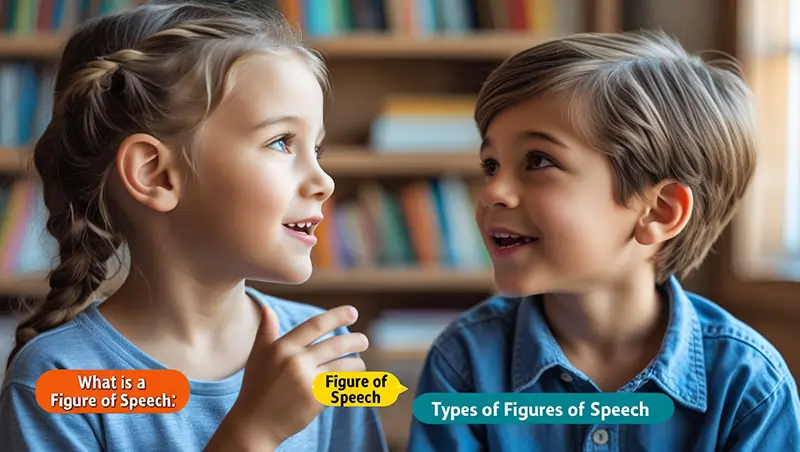Can AI Tools Help Kids Learn? The Answer Will Surprise You
Generation Alpha, it turns out, are using AI almost from birth. Here’s how early exposure to AI benefits them in life.
For today’s Generation Alpha, toys with built-in AI have become part of everyday life. At just three years old, they intuitively understand how to unlock a phone with a fingerprint or navigate to their favorite kids’ vlog channel. It’s crucial to introduce children to digital environments before they start school so they can build lives that surpass those of previous generations.
Early interaction with digital technologies, such as AI chatbots like Overchat AI, can set children up for success in adulthood. That’s why it’s crucial to introduce children to digital environments before they start school, so they can build lives that surpass those of previous generations.
Also, young children’s interest in AI programs is part of digital literacy. The earlier a child learns about innovations, the easier it will be for them to use them in work and study later.
AI is a Big Part of Digital Literacy
For instance:
- AI greatly helps in creative development. Neural networks are already widely used in the field of art. If a child understands how creative ideas arise thanks to neural networks, they will learn to think creatively.
- AI develops critical thinking. Children can give commands by voice and even by text (when they learn to write), and through this they learn to express their thoughts clearly, formulate questions, and present approaches and answers. These are very useful skills that are very important in school.
- AI creates new professions. Many new professions are now emerging that were previously unheard of: neuro-pilots, prompt managers, digital personal assistants, and virtual world designers — these are just a few. A child already understands what these are and, from an early age, starts mastering skills suitable for these specialties.
- AI sparks interest in math. Children watch how AI works and through this immerse themselves in technical disciplines. They are introduced to terms and concepts even before school. Parents often can’t answer their children’s exact questions about a given term or phenomenon. The child’s curiosity is satisfied through speech, and the burden is taken off the parents.
All this can be introduced because a child’s brain is flexible. Children may not be able to write yet, but they perceive information by ear very well at their age (3–6 years).
They are very interested in technical devices, apps, and various online services. This is the best time to develop analytical and creative thinking using AI. Parents should believe that AI will help in upbringing from an educational, not destructive, side.
It would be great for them to search for answers together with their children, asking questions suitable for the child’s age. This way, children begin to perceive AI as a friend-helper and will learn to formulate questions themselves.
Besides education, interactive games based on artificial intelligence are very important — they make the children’s environment more pleasant and productive. You can also consider using such technologies to help children with special needs. AI provides tolerant interaction for those, for example, who have speech difficulties.
Top AI Apps Child Development
Overchat AI
This app brings together a whole set of AI-based tools that can be useful for children both in learning and development. For example, Math AI helps kids solve math problems and explains the solutions in understandable language, developing logical thinking, while AI Question Answerer tells a child what a giraffe is or about the first moon landing. This fosters independence — the child learns to search for information on their own and understands that learning something new can start by just asking a question.
SmartDreams
SmartDreams turns children’s ideas into fairy tales on the fly. Children choose characters, setting — and get a story from AI. This helps develop creativity and gives free rein to a child’s imagination.
Khan Academy Kids
Khan Academy Kids is a free educational app for children aged 2 to 8. It combines AI-adapted difficulty levels with rich interactive content: reading, math, logic, drawing, and even the basics of emotional intelligence. The app adapts to the child’s level and offers tasks appropriate to their skills. Everything is presented in the form of a friendly game with characters that accompany the child in learning.
Sago Mini School
Sago Mini School is an educational app for kids aged 3–5. It helps build foundational knowledge in topics like shapes, numbers, nature, sounds, and emotions. AI adapts the assignments: the app tracks what’s easier or harder for the child and offers suitable material. It’s all built around play, so the child learns through exploration, not formal instruction.
SmartDreams
SmartDreams is an interactive app that creates fairy tales based on a child’s ideas. The child picks the hero, setting, genre — and AI writes a unique story. This helps develop imagination, storytelling skills, and a love of reading. Suitable for children aged 3 to 8. Stories can be listened to aloud, which is convenient for those who don’t read yet.
Lingokids
Lingokids is an educational platform aimed at children aged 2–8. The app teaches English through games, songs, tasks, and mini-dialogues involving AI. The system adapts to the child’s level and encourages repetition to reinforce skills. It’s suitable for bilingual children or those just starting to learn the language.
Bottom line
Artificial intelligence has already become part of the world our children are growing up in. Instead of simply limiting their contact with technology, it’s important to show how to use it beneficially — for development and education. Don’t block your child from AI. This technology doesn’t replace learning. It makes it more interesting and richer, and your child — smarter and more developed.



